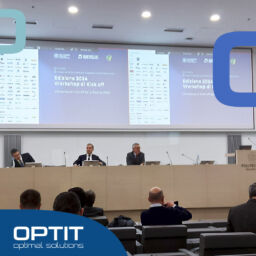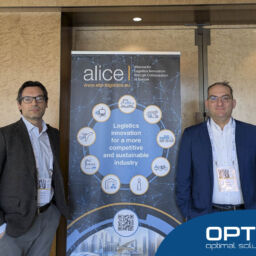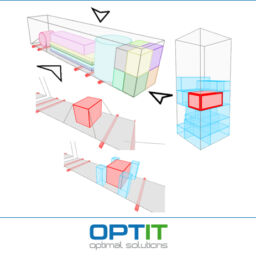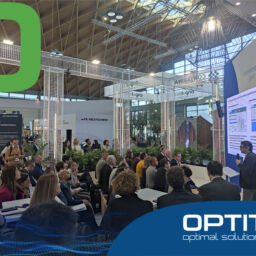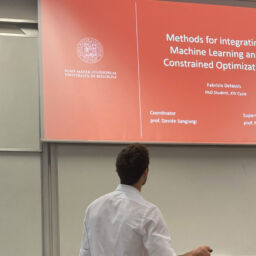A successful review milestone
Last week marked a key moment for the MILA project with the official review meeting. The FAIR meeting with the reviewers confirmed that all activities are progressing as planned and the project is delivering on its ambitious goals.
Coordinated by Optit under the FAIR programme – Spoke 8 “Pervasive AI” – the project focuses on hybrid decision-support models in the Logistics and Environmental sectors.
The positive feedback received validates the quality and consistency of the work carried out, highlighting the project’s contribution to both scientific advancement and real-world applications.
From concept to prototype: what we’ve built so far
Since the beginning of 2025, the project has moved from feasibility analysis to the design, prototyping, and partial integration of hybrid models that combine symbolic methods with machine learning techniques.
Notable developments include a prototype for correcting and inferring master data for routing algorithms, a demonstrator for GPS-based road speed estimation, and forecasting modules capable of handling anomalies and missing values in time series. These efforts have already led to the integration of new features in Optit’s dispatching platform and the creation of demonstrators for workforce planning and load optimization.
We also presented a joint scientific paper with the University of Milan at ISC 2025, one of the leading international conferences on high-performance computing and its applications.
The paper focuses on the use of LSTM models to learn decision-makers’ preferences in routing, bringing hybrid AI closer to real operational needs.
Real-world impact: use cases in Logistics and Waste management
Concrete use cases explored during the project underscore the potential of hybrid AI in improving operational decisions.
In Retail Logistics, we developed machine learning models to automatically infer delivery time windows and vehicle compatibility for new customer locations. In the load building domain, a smart parameter tuning method was applied to metaheuristic algorithms, resulting in a 3.5x speed-up and better optimization results within fixed time budgets. In the Waste sector, we tested hybrid clustering approaches to divide urban areas into efficient collection zones, and we designed solutions to enhance road network modelling based on GPS data.
These case studies demonstrate that hybrid AI is not just a promising research direction, but a powerful enabler of smarter, more efficient, and more sustainable operations.
As the MILA project enters its final phase, the results achieved so far provide a solid foundation for continued innovation, driven by the integration of symbolic and data-driven method, and open new avenues for industrial adoption and academic collaboration.
The MILA project has been funded under the FAIR programme (code PE00000013), as part of Italy’s National Recovery and Resilience Plan (PNRR), with funding from the European Union – NextGenerationEU.







